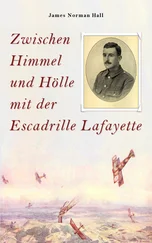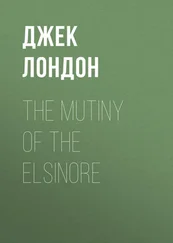No doubt Hitihiti was right, I reflected; since I was destined to live a long time among the Indians, I was justified in adopting their point of view. “You are my taio,” I said. “Will you intercede for me with Vehiatua? Tell him that I love his niece dearly, and desire to marry her?”
The old chief clapped me on the back. “With all my heart!” he exclaimed. “You have been too long without a wife! Now let me sleep.”
Tehani was awake before the others had finished their siesta, and I found her strolling on the beach. We were alone, and she came to me swiftly. “Sweetheart,” I said, “I have spoken to my taio, and he has promised to ask Vehiatua for your hand. I have not done wrong?”
“I spoke to my uncle before he lay down to sleep,” Tehani replied, smiling. “I told him I wanted you for my husband and must have you. He asked if you were willing, and I said that I must have you, willing or not! ‘Do you want me to make war on Hitihiti and kidnap his friend?’ he asked. ‘Yes,’ said I, ‘if it comes to that!’ He looked at me affectionately and then said: ‘Have I ever denied you anything, my little pigeon, since your mother died? This Byam of yours is English, but he is a man nevertheless, and no man could resist you!’ Tell me, do you think that is true?”
“I am sure of it!” I answered, pressing her hand.
When we returned to the house the sun was low, and the two chiefs, who had dismissed their followers, were conversing earnestly. “Here they are!” said Vehiatua, as we came in hand in hand.
“And well content with one another,” remarked my taio smilingly.
“Vehiatua gives his consent to the marriage,” he went on to me. “But he makes one condition—you are to spend most of your time in Tautira. He cannot bear to be separated from his niece. You will sympathize with him, Byam, and I too can understand. But you must come often to visit old Hitihiti, you two!”
“You are to be married at once, Tehani says, and in my house,” said the chief of Taiarapu. “You can sail with me to-morrow, and Hitihiti and Hina will follow in their single canoe. They will represent your family at the temple. You two may consider yourselves betrothed.”
I rose at these words and went into the house to open my box. When I returned, I carried the bracelet and the necklace purchased in London so long before. I showed them first to Vehiatua, who turned them admiringly in his hands.
“My gift to Tehani,” I explained. “With your permission.”
“She should be happy, for no girl in these islands possesses such things. I have seen gold, and know that it is very precious and does not rust like iron. A royal gift, Byam! What may we give you in return?”
“This!” I said, clasping the necklace about Tehani’s neck, and taking her by the shoulders as if I would carry her off.
Vehiatua chuckled approvingly. “Well answered!” he said. “A royal gift in truth. For three and seventy generations she can count her ancestors back to the gods! Look at her! Where in all these islands will you find her like?”
Early the next morning, Vehiatua’s men carried my belongings to the cove, and presently we went on board and the paddlers drove the vessel out through the passage, in the morning calm. She was the finest of all the Indian ships I had seen—her twin hulls each well over a hundred feet long, and twelve feet deep in the holds. Her two masts, well stayed and fitted with ratlines up which the sailors could run, spread huge sails of matting, edged with light frames of wood. On the platform between the two hulls was the small house in which the chief and his women slept, and it was here, sheltered from the rays of the sun, that I was invited to recline during our forty-mile voyage.
We paddled westward, skirting the long reefs of Pare, till the wind made up, and then, spreading our sails, we raced down the channel between Tahiti and Eimeo, with a fresh breeze at north-northeast. Toward noon, when we were off the point of Maraa, the wind died away and presently made up strong from the southeast, so that we were obliged to make a long board out to sea. I perceived at this time that the large Indian canoes, like Vehiatua’s, could outpoint and outfoot any European vessel of their day. With the wind abeam they would have left our best frigates hull-down in no time, and, close-hauled, they would lay incredibly close to the wind.
The sea was rough off shore, and nearly all of the women on board were sick, but I was delighted to observe that Tehani was as good a sailor as I. She was tapatai, as the Indians said—fearless of wind and sea. As we approached the southern coast of Tahiti Nui, she pointed out to me the principal landmarks on shore, and on Taiarapu, beyond the low isthmus toward which we were steering. The southeast wind fell away an hour before sunset, as we were entering a wide passage through the reefs. The sails were furled and, with a score of paddlers on each side, we rowed into a magnificent landlocked bay, where the fleets of all the nations of Europe might have cast anchor, secure from any storm. This bay is on the south side of the Isthmus of Taravao, and is one of the finest and most beautiful harbours in the world.
The isthmus was uninhabited and overgrown with jungle, for the Indians believed it to be the haunt of evil spirits and unfit to be inhabited by men. We slept on board Vehiatua’s vessel that night, and next morning—since the passage around the southeast extremity of Taiarapu was judged dangerous, owing to the violent currents and sunken reefs extending far out to sea—our vessel was dragged on rollers across the isthmus, a distance of about a mile and a half, by a great company of people from the near-by district of Vairao, summoned for the purpose. The principal chiefs and landowners of Tahiti, on their voyages around the island, always have their canoes dragged across this low land, and in the course of centuries a deep smooth path has been worn in the soil. The Vairao people performed their task with remarkable order and cheerfulness, and in less than three hours time our vessel was launched on the north side. At Pueu we entered a passage through the reef and traveled the rest of the distance in the smooth sheltered water close along shore. It was mid-afternoon when we reached Tautira, where Vehiatua resided most of the time.
The chief was received ceremoniously by the members of his household, by the priest of the temple, who offered up a long prayer of thanks that Vehiatua had been preserved from the dangers of the sea, and by a vast throng of his subjects, to whom his justice and good nature had endeared him.
A meal had been prepared, for news of our coming had preceded us, and when Vehiatua, Taomi, the old priest, Tuahu, Tehani’s elder brother, and I sat down to eat on the great semicircular verandah of the house, I caught my breath at the magnificence of the prospect. The house, shaded by old breadfruit trees, stood on high land, close to the deep clear river of Vaitepiha. To the east, the blue plain of the Pacific stretched away to the horizon; to the north and west, across ten miles of calm sea, Tahiti Nui swept up in all its grandeur to the central peaks; and to the west I gazed into the heart of the great valley of Vaitepiha, where cascades hung from cliffs smothered in vegetation of the richest green, and ridges like knife-blades ran up to peaks like turrets and spires. No man in the world, perhaps, save Vehiatua, possessed a house commanding such a view.
Hitihiti and his daughter arrived next day, and the ceremonies of my marriage with Tehani began on the day following. Vehiatua’s first act was to present me with a fine new house, on the beach, about a cable’s length distant from his own. It had been built for the under chief of the district, a famous warrior. This good-natured personage moved out cheerfully when informed that Vehiatua desired the house for his son-in-law—for so he was kind enough to consider me.
Читать дальше











